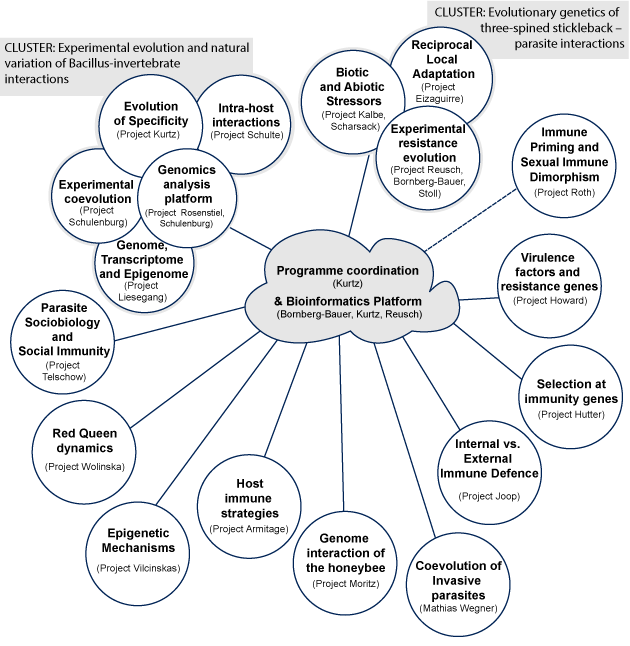Projects
Host-Parasite Coevolution – Rapid Reciprocal Adaptation and its Genetic Basis
Coevolution is reciprocal genetic change in interacting species, owing to natural selection imposed by each other. Coevolution between hosts and their parasites (including bacteria, protists and metazoan animals) is predicted to be dynamic and rapid, mainly because fitness costs caused by parasites are high, parasites are ubiquitous, and they often evolve rapidly due to short generation times.
The unifying goal of this priority programme is to establish host-parasite coevolution as a powerful and versatile model for analysing the causes and processes of evolutionary adaptation, including direct observation of evolution in action. The major objectives are to (1) study adaptation and counter-adaptation of hosts and parasites under different coevolutionary conditions in field and experimental laboratory settings (2) identify important ecological and life-history constraints on host and parasite evolution (3) determine the molecular genetic basis of evolving immunity and virulence (4) identify how genetic variability within host and parasite populations is generated and maintained.


